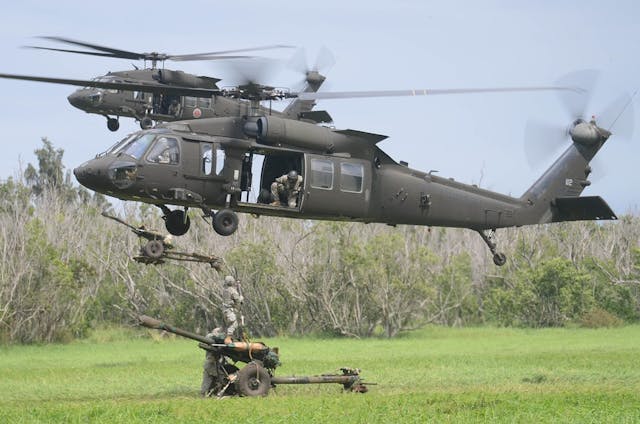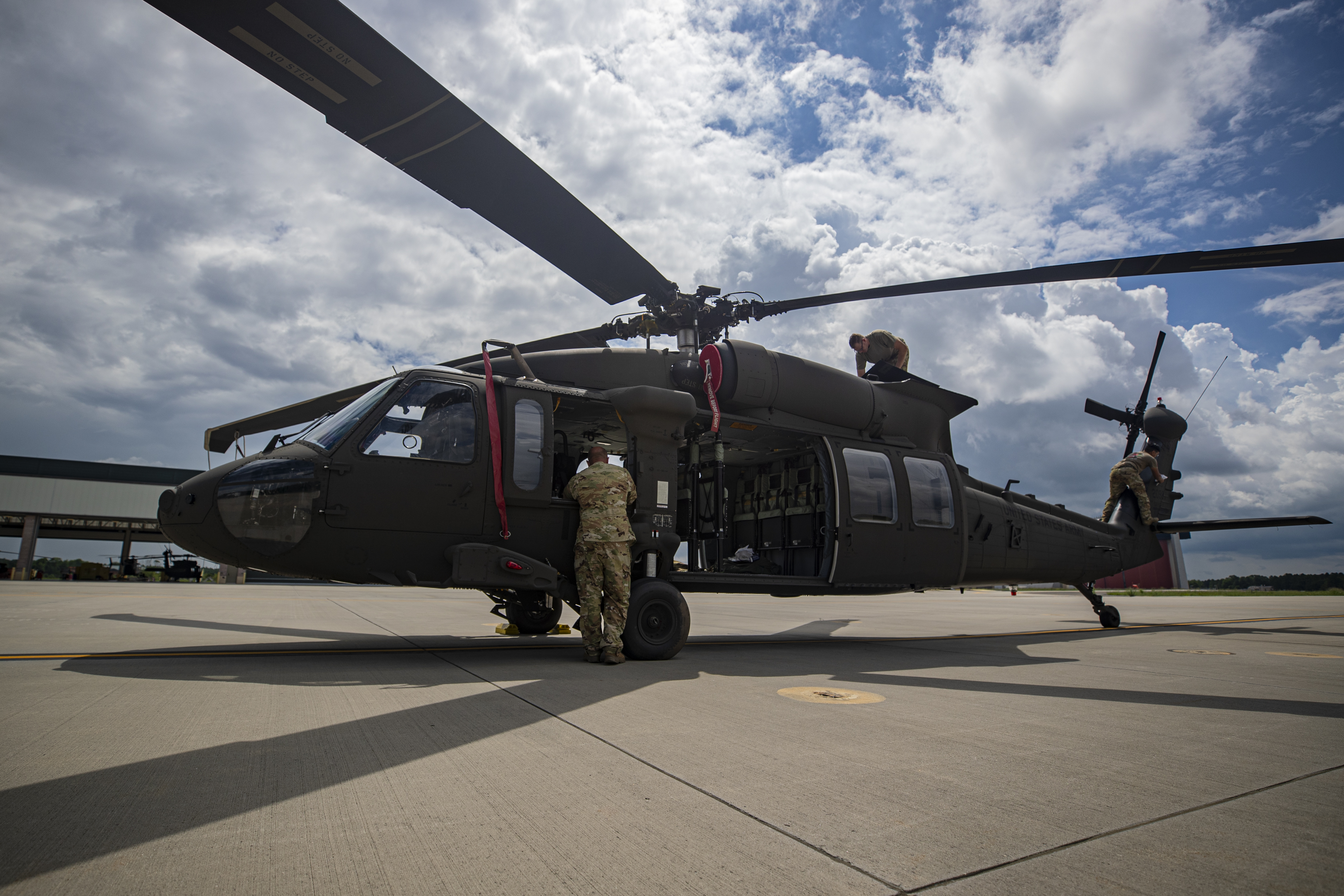UH 60 Black Hawk: Secret Features and Developments
UH 60 Black Hawk: Secret Features and Developments
Blog Article
The Effect of Sustainable Practices on the Future of Airplane Operations and Emissions Reduction
As the air travel sector encounters raising examination over its environmental impact, the adoption of sustainable methods arises as a critical path toward future aircraft operations and discharges reduction. Technologies in lasting aeronautics fuels and improvements in crossbreed propulsion modern technologies stand at the leading edge of this makeover, promising significant reductions in greenhouse gas discharges.

Summary of Lasting Practices
Sustainable methods in aircraft operations encompass a variety of techniques targeted at decreasing environmental effect while preserving operational performance. These practices are necessary in the aeronautics sector's commitment to lessening its carbon footprint and adhering to worldwide environmental requirements. Secret campaigns include maximizing flight paths to minimize gas consumption, enhancing maintenance procedures to guarantee airplane operate at peak performance, and implementing sophisticated modern technologies such as winglets and light-weight materials that boost aerodynamics.

Training and engaging staff on sustainability techniques additionally play an essential duty, promoting a culture of environmental obligation within organizations. In general, the assimilation of these sustainable practices not just assists decrease emissions however likewise enhances the long-lasting stability of the aviation market, guaranteeing it satisfies the demands of both clients and regulative bodies while contributing to worldwide sustainability goals.
Cutting-edge Fuel Alternatives
Various ingenious fuel alternatives are becoming critical options to minimize the aeronautics market's reliance on typical fossil gas. Amongst these options, Lasting Air travel Gas (SAFs) have actually gained significant focus due to their potential to lower lifecycle greenhouse gas discharges by as much as 80% contrasted to traditional jet fuels. SAFs are originated from different feedstocks, including waste oils, agricultural residues, and even algae, making them a functional option for the market.
Another promising alternative is hydrogen gas, which, when used in fuel cells, creates only water vapor as a by-product. Additionally, electrical propulsion systems are being discovered, leveraging battery innovation to power airplane.
Last but not least, biofuels acquired from biomass are being examined, offering an eco-friendly option that can be combined with conventional fuels. Collectively, these innovative gas options stand for an essential action towards accomplishing a lasting air travel ecosystem, aligning with international exhausts decrease targets and boosting the market's environmental stewardship.
Technical Innovations in Aviation

Just how can technological improvements improve the future of air travel? The integration of sophisticated modern technologies is crucial in transforming aircraft operations, boosting effectiveness, and minimizing emissions. Advancements such as hybrid and electric propulsion systems are at the center, appealing significant decreases in fuel intake and greenhouse gas emissions. These systems go to this website utilize developments in battery modern technology and energy administration, making it possible for airplane to operate with a lower ecological footprint.
Moreover, the execution of advanced materials, such as lightweight compounds, contributes to boosted aerodynamics and gas efficiency. The use of expert system and maker learning see post in trip operations enhances path planning and lowers gas shed by enabling real-time adjustments based upon weather condition and web traffic conditions. Additionally, the growth of self-governing and from another location piloted airplane systems stands to revolutionize cargo and traveler transport, potentially increasing performance while minimizing human error.
In addition, sustainable air travel technologies, including advanced air traffic administration systems, can minimize and improve procedures blockage, causing reduced emissions throughout flight. These innovations collectively represent a paradigm change in aviation, assuring a future where sustainability and operational efficiency are intertwined, consequently supporting the sector's dedication to lowering its ecological influence.

Regulative Structure and Compliance
Due to the growing focus on environmental stewardship within the aviation sector, the regulatory framework governing airplane procedures is developing to advertise sustainable techniques. Governing bodies, such as the International Civil Aeronautics Organization (ICAO) and numerous national aeronautics authorities, are introducing rigorous guidelines targeted at decreasing discharges and boosting functional effectiveness.
These laws usually include the adoption of Lasting Air travel Fuel (SAF), which has been identified as a crucial element in attaining reduced carbon footprints. Compliance with these regulations requires airlines to implement operational practices and sophisticated technologies, such as enhanced trip paths and improved air web traffic management, to reduce fuel consumption.
Additionally, the enforcement of discharges trading systems and carbon countering campaigns is becoming progressively common, engaging airlines to keep track of and report their emissions precisely. Non-compliance can cause considerable charges, hence pressing drivers to focus on sustainability in their organization versions.
Ultimately, the evolving regulative landscape not just drives innovation and investment in environment-friendly technologies yet also promotes a society of responsibility within the air travel market. As these structures remain to create, the focus on sustainable practices will certainly be indispensable to accomplishing the industry's long-lasting environmental objectives.
Future Patterns in Airplane Procedures
As the aviation sector adapts to an increasingly stringent regulative setting, future fads in airplane operations are established to concentrate on ingenious solutions that additionally enhance sustainability and performance - uh 60. Key growths will likely include the fostering of innovative air traffic administration systems, which utilize real-time data and expert system to enhance trip courses, reducing fuel usage and exhausts
An additional significant pattern is the enhanced integration of sustainable aeronautics fuels (SAFs) These choices to conventional jet fuel, stemmed from sustainable sources, can considerably reduce lifecycle greenhouse gas exhausts. The market's dedication to SAFs will likely speed up as airline companies team up with gas manufacturers to ensure availability and cost-effectiveness.
Furthermore, the push towards electrification and crossbreed propulsion systems is obtaining energy. Arising aircraft styles will include these modern technologies, offering quieter and a lot more effective procedures, particularly for short-haul flights.
Final Thought
To conclude, the assimilation of lasting techniques in airplane procedures holds substantial web link possibility for exhausts decrease and boosted efficiency. The fostering of sustainable aeronautics fuels, combined with developments in hybrid and electrical propulsion systems, is important for minimizing lifecycle greenhouse gas emissions. Moreover, maximizing trip courses and accepting cutting-edge modern technologies add to a quieter and much more eco-friendly aviation sector. Collectively, these efforts align with international sustainability objectives and lead the way for a greener future in aviation.
Technologies in sustainable air travel gas and improvements in hybrid propulsion modern technologies stand at the forefront of this improvement, promising considerable reductions in greenhouse gas emissions.Various ingenious gas options are arising as crucial remedies to lower the aeronautics industry's reliance on traditional fossil fuels - uh 60. Among these alternatives, Lasting Air travel Gas (SAFs) have actually obtained substantial attention due to their potential to decrease lifecycle greenhouse gas emissions by up to 80% compared to standard jet fuels.An additional substantial trend is the raised combination of sustainable air travel fuels (SAFs) The fostering of lasting aeronautics fuels, coupled with innovations in hybrid and electric propulsion systems, is essential for minimizing lifecycle greenhouse gas emissions
Report this page